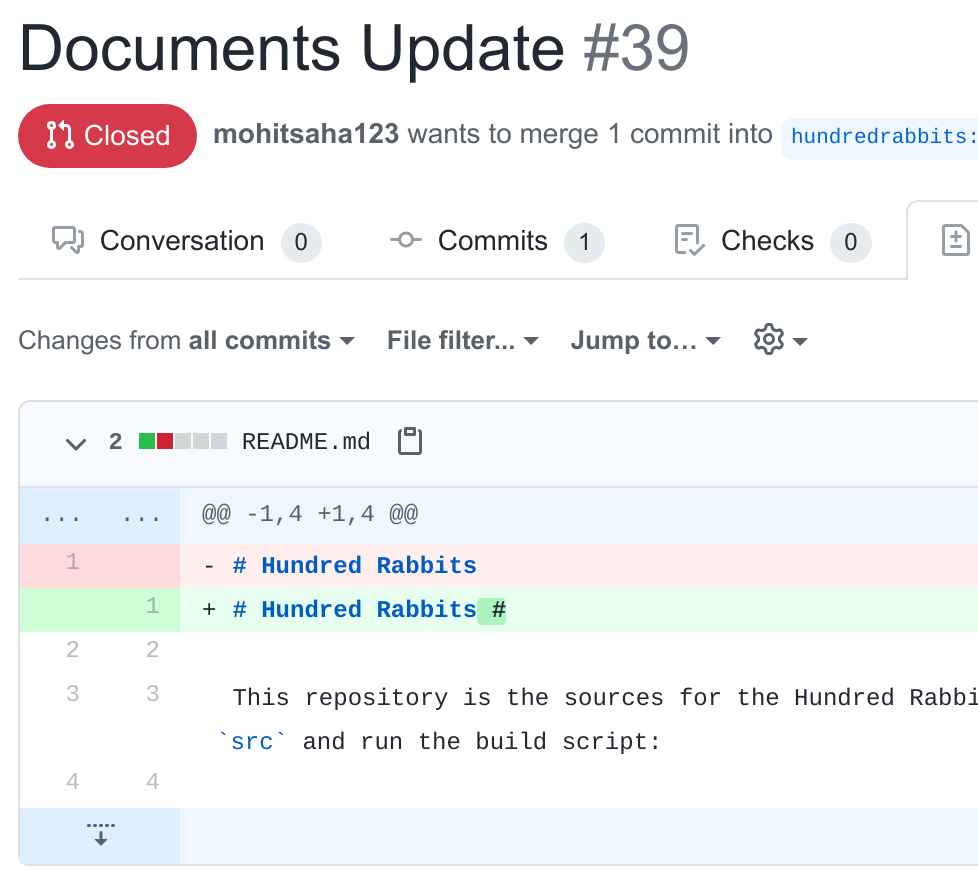Feed digilinux.ru [copy] http://digilinux.ru/feed/ has loading error: cURL error 22: The requested URL returned error: 403 Forbidden
Feed freepost [copy] https://freepo.st/rss/new has loading error: cURL error 22: The requested URL returned error: 500
I'm handing over maintenance of wlroots and sway to Simon Ser
Over the past several months, I’ve been gradually weaning down my role in both projects, and as a contributor to Wayland in general. I feel that I’ve already accomplished everything I set out to do with Wayland — and more! I have been happily using sway as my daily driver for well over a year with no complaints or conspicuously absent features. For me, there’s little reason to stay involved. This will likely come as no surprise to many who’ve kept their ear to the ground in these communities.
Simon has been an important co-maintainer on wlroots and sway for several years, and also serves as a maintainer...
Firefox: The Jewel^WEmbarassment of Open Source

Circa 2006, the consensus on Firefox was concisely stated by this classic xkcd:
This feeling didn’t last. In 2016, I wrote In Memoriam - Mozilla, and in 2017, Firefox is on a slippery slope. Well, I was right, and Firefox (and Mozilla) have only become worse since. The fuck-up culture is so ingrained in Mozilla in 2020 that it’s hard to see it ever getting better again.
In the time since my last article on the subject, Mozilla has:
Laid off 25% of its employees, mostly engineers, many of whom work on Firefox1 Raised executive pay 400% as their market share declined 85%2 Sent a record of all browsing traffic...SPM-ifying YapDatabase
Converting an existing Objective-C/Swift framework to Swift Package Manager I'm a big fan of the database library YapDatabase, which is a collection/key/value store for macOS, iOS, tvOS & watchOS. It comes with many high level features and is built atop sqlite. In the last 5 years, I have used this successfully for many of my projects. It is written in Objective-C and comes with a bunch of Swift files for more Swifty use. Since I recently announced to go all-in with Swift, I want to convert all my dependencies to the Swift Package Management system. I have never been a...
Status update, October 2020
I’m writing this month’s status update from a brand-new desktop workstation (well, I re-used the GPU), my first new workstation in about 10 years. I hope this new one lasts for another decade! I aimed for something smaller and lightweight this time — it’s a Mini-ITX build. I’ve only been running this for a few days, so let me tell you about the last few accomplishments which are accountable to my venerable workstation’s final days of life.
First, there’s been a ton of important work completed for SourceHut’s API 2.0 plans. All of the main blockers for the first version of meta.sr.ht’s writable GraphQL API are resolved, and...
Four principles of software engineering
Software should be robust. It should be designed to accommodate all known edge cases. In practice, this means predicting and handling all known error cases, enumerating and addressing all classes of user inputs, reasoning about and planning for the performance characteristics of your program, and so on.
Software should be reliable. It should be expected to work for an extended length of time under design conditions without failures. Ideally, it should work outside of design conditions up to some threshold.
Software should also be stable. It should not change in incompatible or unexpected ways; if it works today it should also work tomorrow. If it has to change, a...
Programming Languages
While I never got much into natural languages (beyond my native tounge, a halfway solid english, and some bits and pieces of french), I have always been fascinated by (some) programming languages – I even wrote books about some of them. I (literally) grew up with BASIC and 6502/6510 ASSEMBLER – on the VC20 and the C64. Later on, learned to hate C and love 680x0 ASSEMBLER – on the AMIGA. During the 90s, I enjoyed PASCAL and MODULA II, and then found a preliminary home in Python. The 2000s were largely affected by C++ (which I always found much...
Spamtoberfest
https://oc.todon.fr/@val/104960502585461740/embed

As I’ve written before, the best contributors to a FOSS project are intrinsically motivated to solve problems in your software. This sort of contribution is often fixing an important problem and places a smaller burden on maintainers to spend their time working with the contributor. I’ve previously contrasted this with the “I want to help out!” contributions, where a person just has a vague desire to help out. Those contributions are, generally, less valuable and place a greater burden on the maintainer. Now, DigitalOcean has lowered the bar even further with Hacktoberfest.
Disclaimer: I am the founder of a FOSS project hosting company similar to GitHub.
As I write...